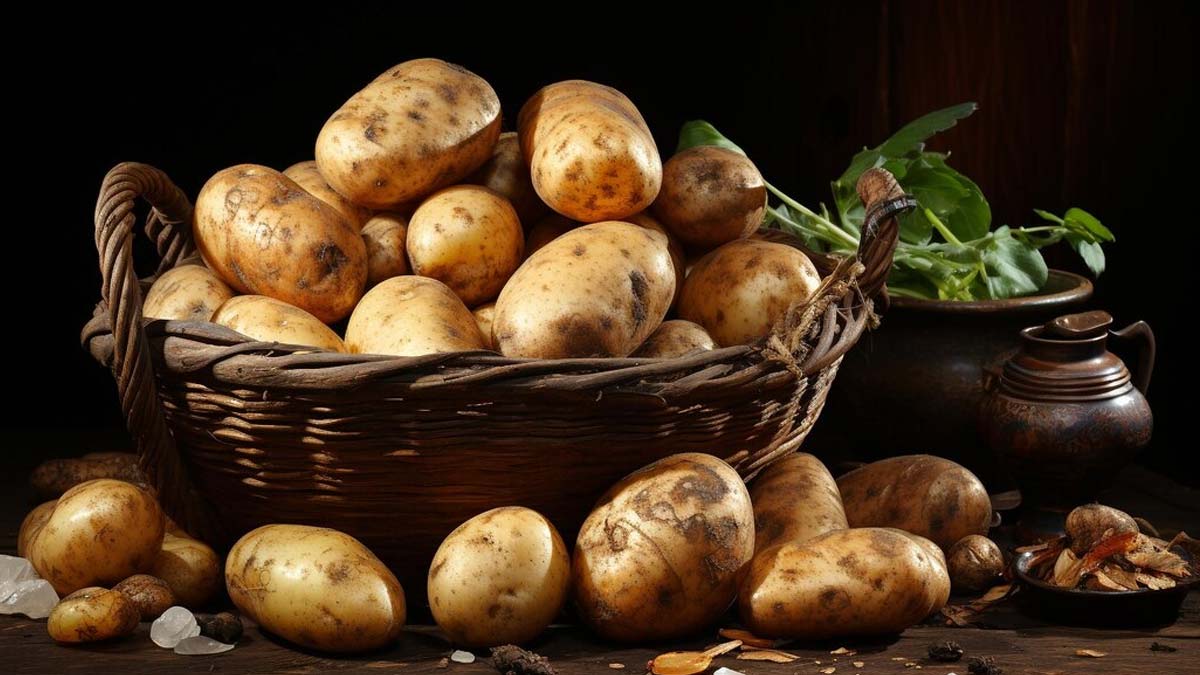
Potatoes are consumed as a staple food in various parts of the world. They belong to the nightshade family, also called Solanaceace, which includes other scrumptious vegetables such as peppers, tomatoes, eggplant, and more.
Table of Content:-
In general, potatoes are highly nutritious and contain antioxidants that help reduce the risk of chronic inflammation and serious health conditions. According to the US Department of Agriculture (USDA), a 100-gram serving, which is equal to about half a medium potato, provides about 95 calories, 21.4 g of carbohydrate, 2.63 g of protein, and 2.3 g of fibre. While low in fat and cholesterol, it is packed with vitamin C, B6, folate, and other essential minerals like potassium.
Also Read: Nightshade Allergy: Read To Know How Vegetables And Fruits Can Cause Allergies
All of these nutritional factors not only help promote heart health and support the digestive system, but also improve bone health and reduce inflammation in the body. But even with all these beneficial properties, there are some people who should avoid consuming potatoes in excess. Speaking with the OnlyMyHealth team, Dr Preeti Nagar, Dietitian at Noida International Institute of Medical Sciences and Hospital (NIIMS), NIU, sheds light on the same.
Should Some People Avoid Eating Potatoes?

When potatoes are cooked properly, they are generally safe for most people to consume, says Dr Nagar.
However, due to its high Glycaemic Index (GI), people with certain diseases, like diabetes, may need to watch their intake of potatoes.
GI is used to measure the rate at which a food can make your blood sugar or glucose rise.
According to the UK's National Health Service (NHS), carbohydrate foods that are broken down quickly by your body and cause a rapid spike in blood sugar levels are said to have a high GI rating. Potatoes are also considered high-GI foods, along with sugary foods, sugary soft drinks, white bread, and white rice.

It is important to know that people with diabetes need not completely avoid eating potatoes. However, moderation is key, says Dr Nagar.
Also Read: Sweet Potato: The Winter Food That Provides Heart Healthy Benefits
She also advises people with kidney problems to watch their potato intake. This is because of the vegetable’s high potassium content.
Generally, the kidneys filter out potassium and lose it through the urine. But with a kidney disease, the organ fails to function effectively and may not be able to remove enough potassium from the body, leading to a potassium buildup, also known as hyperkalemia.
In addition, if you have a potato allergy, it is best to avoid the vegetable completely. Symptoms may usually include an itchy mouth, tongue, lips, ears, or throat; swelling in the mouth; hives; breathing issues; a cough; and a sore throat.
Better Alternatives To Potatoes

If you have diabetes or are searching for potatoes with a lower GI, take into account the following:
- Moderate amounts of sweet potatoes
- Roasted or mashed cauliflower, used as a potato substitute
- Types of squash
- Legumes (as a high-protein substitute)
In conclusion, Dr Nagar recommends people with diabetes balance their meals with protein, fibre, and healthy fats and follow a proper dietary plan suggested by a doctor.
Also watch this video
How we keep this article up to date:
We work with experts and keep a close eye on the latest in health and wellness. Whenever there is a new research or helpful information, we update our articles with accurate and useful advice.
Current Version